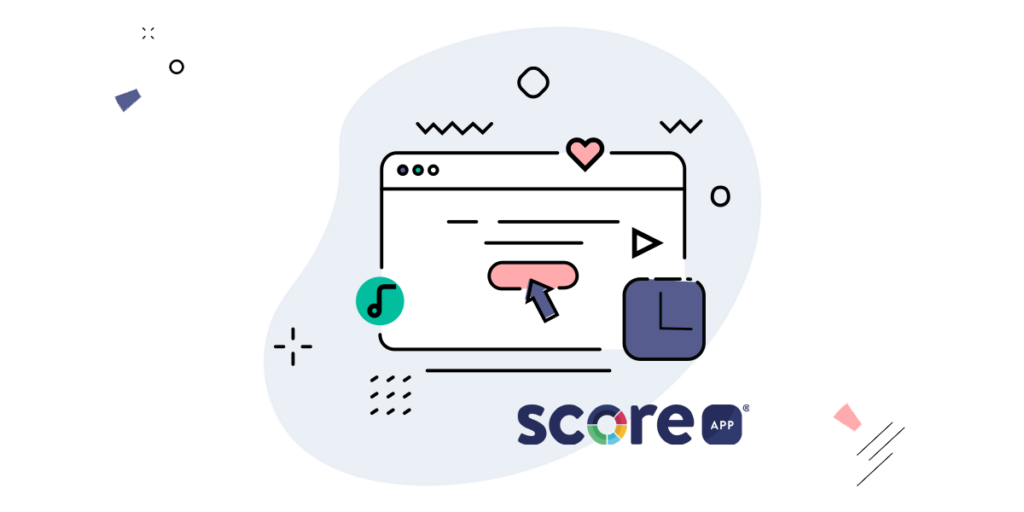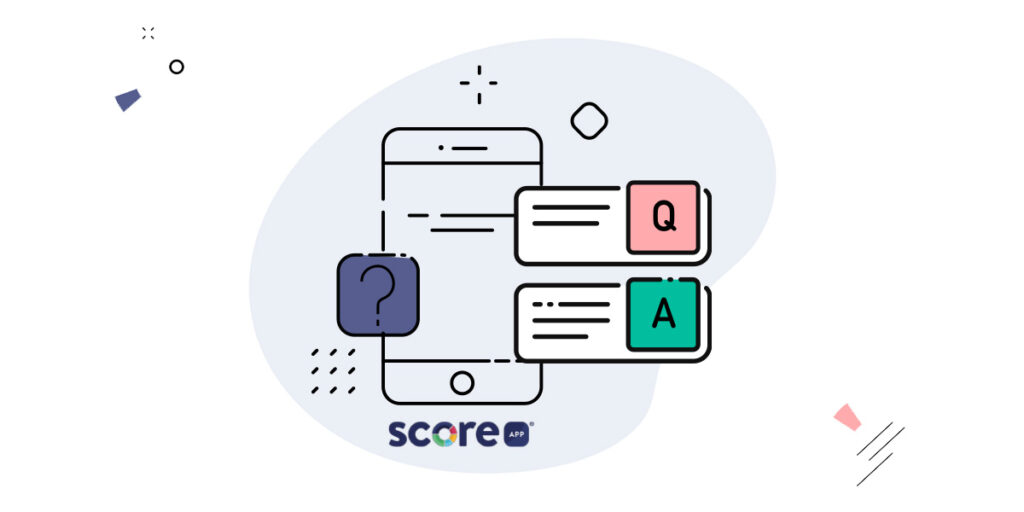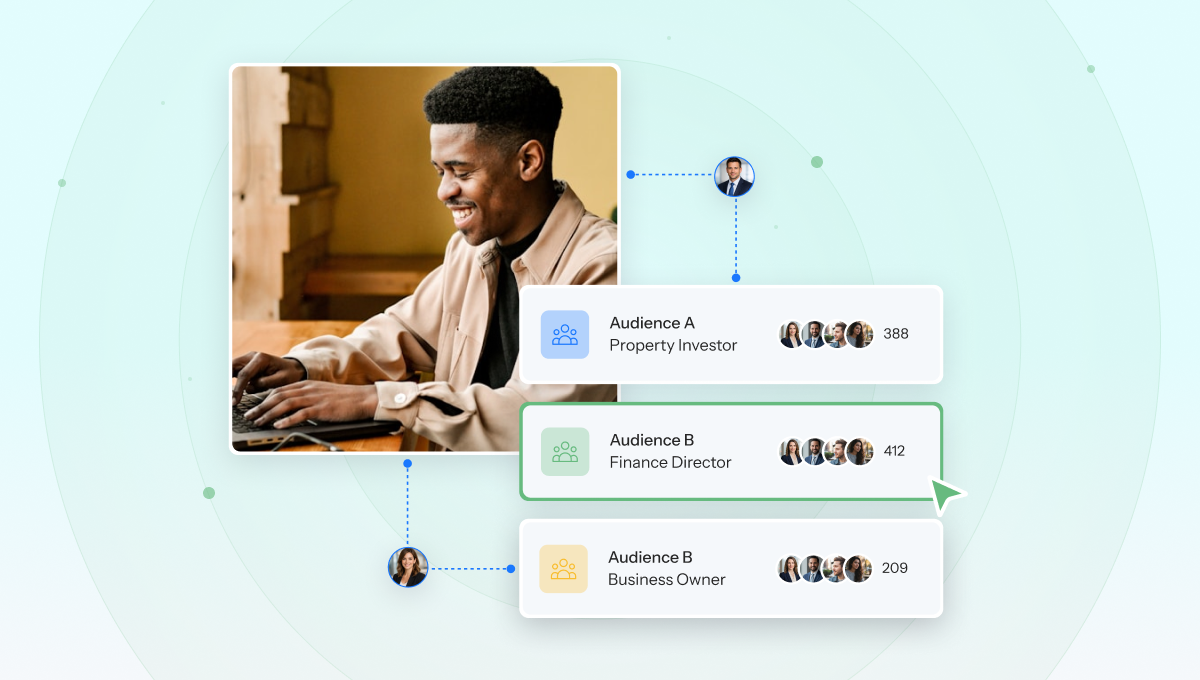
Successful market research starts with effective data collection, and this doesn’t have to involve an expensive agency, time-consuming focus groups, or messy manual work.
With surveys and quizzes, you can ask questions to your target audience automatically, easily spot trends and patterns, and use your new insights to make informed decisions. Much simpler, quicker, and more budget-friendly!
Which one should you choose, though: a market research quiz or a survey?
Both formats share similarities, but some features make them a better fit for different goals.
So, we’ll walk you through them to help you identify the best option for your market research, and we’ll also show you how you can get started today and for free with ScoreApp.
First things first: what’s the difference between a quiz and a survey?

While both quizzes and surveys allow you to gather data by asking questions to your participants, they have a different focus:
- Surveys are a more traditional format for market research and feedback collection, consisting of a straightforward list of questions. Since they don’t give anything back to their participants, though, it can be harder to motivate people to take part. However, you can get around that by offering them an incentive (like an exclusive discount or digital product download) or by leading with why their input matters
- In quizzes, questions are packaged around a tailored and interactive experience that offers something valuable to its participants, too: personalized results or a score. Because it allows them to test their knowledge or better understand themselves and their current situation, that’s a big incentive in itself!
As you can see, some elements do overlap, but let’s focus on the individual strengths making quizzes and surveys better suited to different scenarios.
When to use a quiz for your market research

A market research quiz works best if, as well as collecting data, you’d also find it beneficial to:
- Capture your participants’ contact details to stay in touch and generate leads
- Deliver value instantly through personalized and insightful results (like “What’s Your Brand Identity Score?”)
- Educate your audience on their problems or your industry
- Segment your new contacts, dividing them into groups based on their quiz answers
- Nurture them in a personalized way, kickstarting an automated workflow (for example, by connecting your quiz to your CRM or email marketing platform)
- Guide them toward the right service, product, or next step for them, depending on their unique situation
And what does a market research quiz look like? With ScoreApp, you can create different types, such as:
- Assessment quizzes – Test your participants’ knowledge on a specific topic or their readiness to solve their problems and take action. For example, “How Much Do You Know About SEO?”
- Profile quizzes – Match each participant to the category or personality type that best describes them, tapping into their sense of belonging and self-discovery. For example, “What’s Your Entrepreneur Profile?”
- Scorecards – Benchmark your participants against industry standards, or help them understand their strengths and weaknesses, scoring them across various categories. For example, “Take our Business Growth Scorecard to discover what’s standing in your way and what you can leverage to start scaling your company”
Overall, quizzes are better suited for market research when you’re aiming for data collection and another goal, like lead generation, brand awareness, or boosting your engagement. Two birds with one stone!
When to use a survey for your market research

A market research survey is a particularly popular option when you need to:
- Collect lots of quantitative data
- Get direct feedback (for example, through open-ended questions)
- Keep your focus on insights rather than value and personalization
Because of that, surveys tend to feel more formal and impersonal than quizzes, but fret not: with ScoreApp, you can get around that.
For example, wow your participants with a visually attractive layout, questions that flow like a 1:1 conversation, and logic jumps that keep the entire experience relevant to their situation.
How to decide which format is best for your market research: quiz or survey?

Keep in mind that these aren’t set rules. Depending on your situation, a quiz might still make more sense than a survey or vice versa.
In most cases, though, one format tends to be better suited for each of these common goals.
So, start from yours, and work your way backward to figure out if you need a market research quiz or survey.
Here’s what we recommend.
1. Segmenting leads and personalizing follow-ups
Best option: quiz
As seen before, quizzes go beyond data collection.
So, after capturing your participants’ contact details, you can also use your new insights to segment them accordingly, stay in touch, and personalize your communication as well as their overall experience.
This is particularly handy if, after nurturing your new audience (for example, through a tailored email sequence), you’re planning on recommending the best product, service, or next step for them.
Example: A social media agency is conducting market research to understand their target clients’ behavior on those platforms. So, they launch a ScoreApp quiz titled “Is Your Social Media Marketing Working FOR or AGAINST Your Business?”. Whenever the quiz identifies their perfect-fit clients (based on their answers), it kickstarts an email sequence to nurture them and, eventually, invite them on a call.
2. Creating benchmark results or scores
Best option: quiz
A quiz helps your participants better understand their situation (especially in comparison to other people or businesses in their sector) while putting your new data into context.
This will also make it a breeze for you to spot trends and patterns, especially if you create a scorecard quiz.
Example: An SEO consultant wants to measure their clients’ knowledge and level of awareness. So, when conducting their market research with ScoreApp, they lead with: “You know you need SEO to reach your customers on Google, but are you clear on how it works, or does it all feel complicated? And how well is your current SEO serving you? Find out with our free SEO Scorecard.”
3. Gathering broad opinions or feedback
Best option: survey
Surveys keep the focus on the actual questions.
So, they’re more practical for measuring your audience’s sentiment (for example, around your brand, industry, or a product you’re thinking of creating), gathering feedback from your existing customers, or understanding how they talk about their problems and goals in their words.
Example: An e-commerce business is conducting market research to improve their user experience. So, they create a ScoreApp survey with some open-ended questions to go more in-depth without influencing their participants’ answers, and they only send it to customers who’ve already bought from their online store.
4. Collecting data for a content campaign or white paper
Best option: survey
Thanks to their straightforward format, surveys make it easier to gather lots of insights in one go.
You can especially collect plenty of quantitative data by asking several quick-to-answer questions like yes/no and sliding scales.
Example: A time-management coach wants to publish an original research. So, they create a targeted ScoreApp survey, and to encourage more of the right people to participate, they lead with: “Always busy but not getting as much done as you’d like? I promise: you’re not the only one. Will you share your experience (confidentially) to help me understand your biggest challenges?”
5. Making the experience fun and interactive
Best option: quiz
This one is a no brainer, because quizzes are super valuable for your participants.
They don’t just give you data: they offer them clarity and self-discovery, a tailored experience, and personalized results.
This will allow you to boost your brand awareness and re-engage or grow your audience while conducting market research.
Example: A travel agency wants to better understand their target customers but also sell more holiday packages. So, they launch a fun ScoreApp quiz to reach more people and analyze their answers: “What’s Your Travel Personality?” Then, they nurture them with different email sequences depending on their results, eventually recommending the best package for each lead or inviting them on a call.
With ScoreApp, you can create market research quizzes and surveys (and even get the best of both worlds)

It doesn’t necessarily have to be “one market research quiz or a survey, full stop.”
With ScoreApp, you can choose to:
- Create the right blend – For example, how about using a survey but with a more colorful quiz-style design and logic jumps for a personalized experience?
- Use both (for separate goals or at different times) – For example, start with a market research survey that also segments and pre-qualifies your participants, automatically sending a separate “readiness quiz” to your hottest leads
Quiz vs survey for market research: choose the format that works best for your goals, and start collecting high-quality data with ScoreApp

Both market research quizzes and surveys are ideal to collect data, but they can be better suited for different goals. So, start from yours, and choose the most adequate format for it.
Regardless of whether you launch a market research quiz or survey, ScoreApp gives you everything you need to:
- Create it within minutes thanks to our intuitive drag-and-drop builder and customizable templates
- Collect your participants’ contact details as well as their data, so you can stay in touch
- Segment and pre-qualify them automatically based on the criteria you choose
- Connect your survey or quiz to your email marketing platform and CRM, triggering a personalized workflow to nurture your audience automatically
- Find all your submissions and data in your dashboard, easily making sense of your new market research insights
So, start collecting the data you need: create your market research quiz or survey today and for FREE with ScoreApp.




